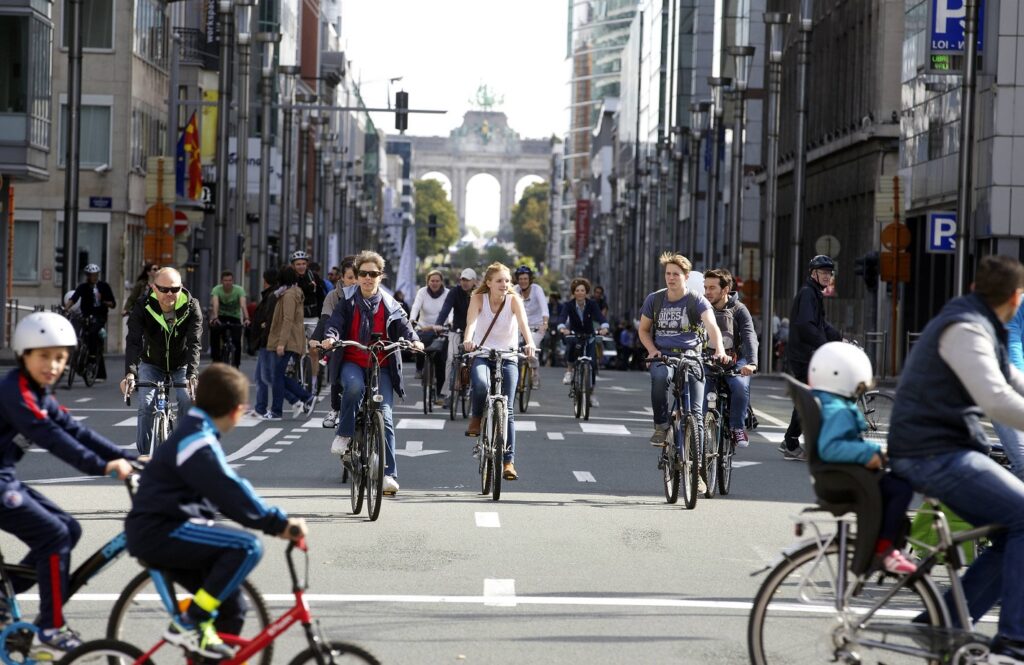As Brussels and several Flemish cities have transformed into a car-free zone on Sunday, barely any cities in Wallonia have followed suit.
Only the city of Ath in Wallonia has implemented it, according to RTBF.
In an interview with Bart Jourquin, mobility economist at UCLouvain, the absence of car-free days in other Walloon cities, despite its prevalence in Flanders and Brussels, relates to a unique approach required for handling their mobility challenges.
Given the rural nature of Wallonia, Jourquin suggests that many individuals perceive personal vehicle use as their only viable transportation option.
Different realities in urban and rural areas
Jourquin says that rural Wallonia's transportation challenges are deeply tied to its land use and developmental patterns. In contrast to urban centres, rural settlements frequently expand alongside connecting roads, making it difficult to efficiently serve these areas with public transport.
The common practice of frequent bus stops in these areas inevitably slows down operational speed and potentially diminishes public transport appeal.
So, what's the solution? Jourquin believes that a shift from the status quo might be necessary. He points to the Walloon public transport operator, TEC, exploring new models responsive to actual transport demand. For example, deploying smaller buses when needed could enhance accessibility and service effectiveness.
On the other hand, similar attempts in Flanders to increase bus frequency in all villages regardless of demand proved costly due to low occupancy rates. Hence, striking the right balance between providing adequate supply without outstripping demand is crucial.

